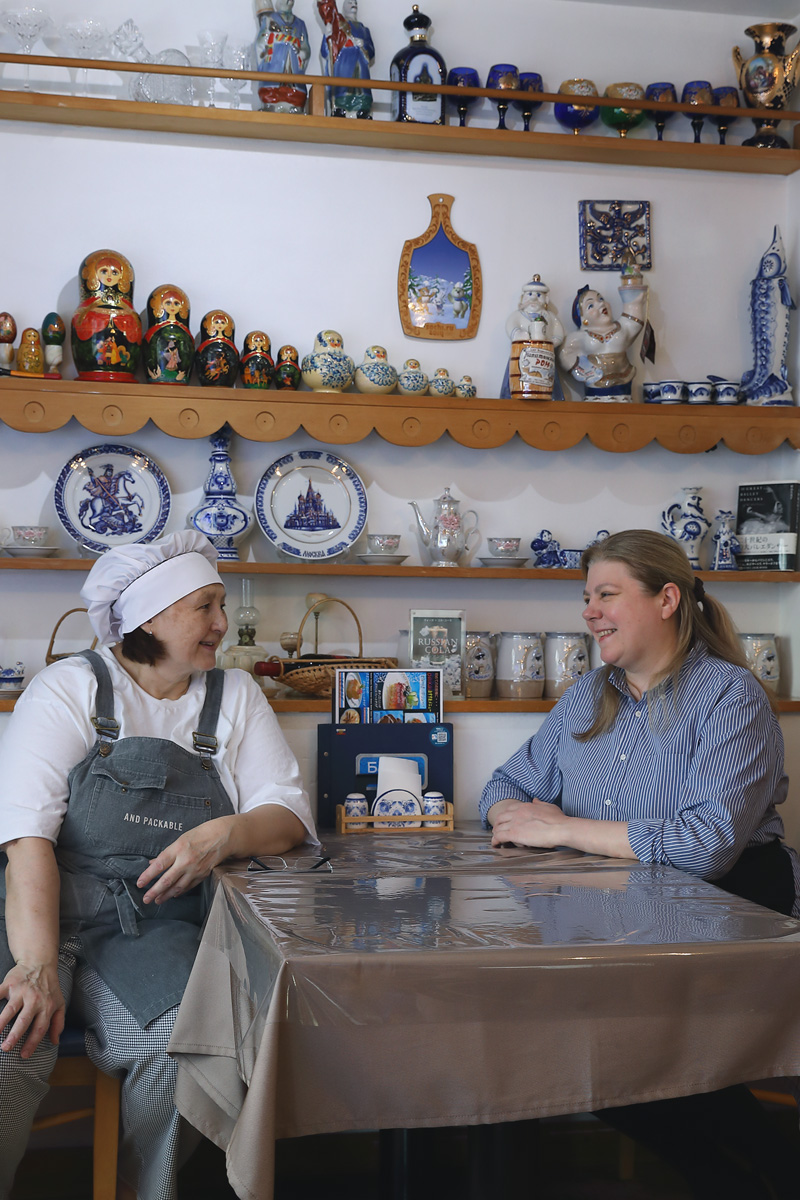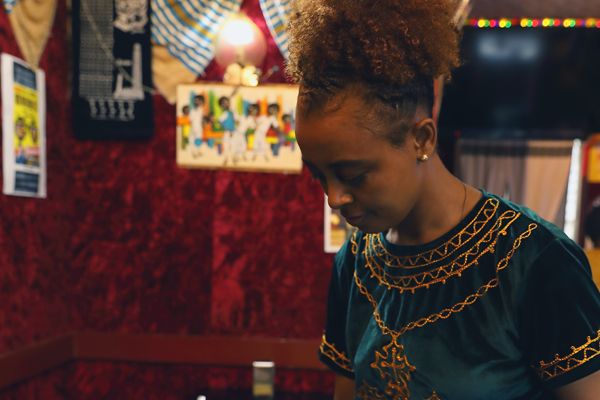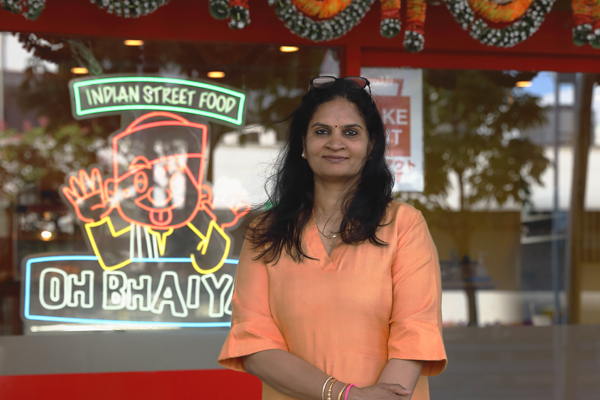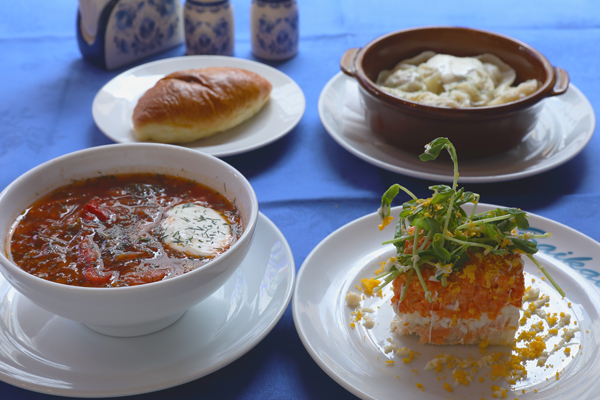美味しいウイグルを日本に馴染ませる、初台の「シルクロード・タリム」。
Feature | 2025.6.24

[ シルクロード・タリム ウイグルレストラン]
ウイグル人であることを大切にしながら、
第二の故郷である日本を愛する。
シルクロード・タリム ウイグルレストラン
東京都新宿区西新宿3丁目15-8-103 (西新宿バールビル1階)
tel.03-6276-7799
新疆ウイグル自治区は中国にある5つの自治区のひとつ。暮らしているのはトルコ系の少数民族で、中国で大多数を占める漢民族とは文化も言語も顔立ちも違い、ほとんどがイスラム教徒。中国政府から弾圧を受け国際的な問題となっている。そんななか、日本に来るウイグル人は多い。
新宿の近く、初台にあるウイグルレストラン「シルクロード・タリム」を経営する塔里木スラジディンさんも若い頃にウイグルから日本へやって来た。 「私は2001年、日本に留学で来ました。 大学を卒業後、 企業に就職して経営の管理システムなどを学び、2010年に『シルクロード・タリム』をオープンさせました」。
日本人がウイグルを知らなかったことが、レストラン経営につながった。「当時、ウイグルから来たというと “モンゴルからですか?” と聞かれる。日本人がウイグルのことを知らないのが残念で、どうにかできないかとあるボランティアの先生に相談しました。すると先生から“あなたは飲食の経験があるからそれを活かしなさい”とアドバイスをもらいレストランを始めました」。
場所を初台にしたのは、代々木上原にモスクがあったから。「代々木上原に東京ジャーミイというモスクがあります。そこになるべく近い場所をと、初台にしました。当時はハラルの店が少なく、日本に住むムスリムたちは食事に困っていました。そんなこともあり、店にはウイグル人たちが多く訪れるようになりました」。
みんな、本場の味を求めて集まってくる。「店では本場の味にこだわり、スパイスなどを現地から輸入。お客さんはラグメンやケバブなど、故郷の味を楽しんでいますよ」。 スラジディンさんはウイグルにいる頃から日本文化の影響を多く受けたという。「初めて買ったバイクが日本製。テレビも日本製で、映画は高倉健の『君よ憤怒の河を渡れ』が好きでした。ウイグルでは、初めて知る海外が日本でした」。
憧れていた日本に暮らしても、やっぱり故郷は恋しくなる。そんなウイグル人たちが楽しみにしているのがノウルーズという儀式。「3月20日に行われる春の到来を祝うお祭りです。毎年、300人ほどが集まり、着飾り、ご馳走を楽しみます。この儀式に出される料理は私の店から提供しています」。
自分たちの文化を大切にしながらも、日本に馴染んでいこうとしているウイグル人たち。「日本人はとても真面目で大好きです。でもたまに、冷たい人もいて、不安になることがあります。私は今、日本国籍をもち、その日本を愛しています。第一の故郷を失った私は、第二の故郷も失いたくはありません」。きっと大丈夫ですよ、スラジディンさん。これからもずっと、ここ初台で美味しいウイグル料理を食べさせてください。
Introducing Uyghur Flavors to Japan:
Silk Road Tarim in Hatsudai.
Honoring his Uyghur identity while embracing Japan as a second home.
The Xinjiang Uyghur Autonomous Region is one of five autonomous regions in China. Home to a Turkic Muslim minority with its own language and culture, Uyghurs differ from the Han majority and have long faced government repression, causing many to emigrate to Japan.
Tarim Sirajidin, who runs the Uyghur restaurant Silk Road Tarim in Hatsudai near Shinjuku, came to Japan as a student in 2001. After studying management at a company post-graduation, he opened the restaurant in 2010.
Few Japanese knew about Uyghurs, which led Sirajidin to open the restaurant. “Back then, when I said I was from Uyghur, people would ask, ‘From Mongolia?’ I found that sad and spoke to a volunteer teacher, who said, ‘You have food service experience—use it.’ That’s how the restaurant began.”
He chose Hatsudai for its closeness to the Tokyo Camii mosque in Yoyogi-Uehara. “There were few halal restaurants back then, and many Muslims had trouble finding food, so many Uyghurs began coming to my place.”
People come for the authentic taste. “We import spices and ingredients from home, and serve dishes like laghman and kebabs—true flavors of our homeland.”
Even while Sirajidin was still living in Uyghur, Japanese culture left a mark. “My first motorcycle was Japanese. My TV was Japanese, too. And I loved Ken Takakura’s film Manhunt. Japan was our first window to the world.”
Even after realizing his dream of living in Japan, he still misses home. A celebration Uyghurs in Japan look forward to is Nowruz. “It’s a spring festival held on March 20. Around 300 people dress up and come together to enjoy a feast—and my restaurant provides the food.”
Uyghurs in Japan strive to preserve their culture while fitting in. “I admire the sincerity of Japanese people, though at times they can seem distant. I’m now a Japanese citizen and love this country. Having lost one homeland, I don’t want to lose another.” You’ll be just fine, Sirajidin—please keep delighting us with your delicious Uyghur cuisine in Hatsudai.
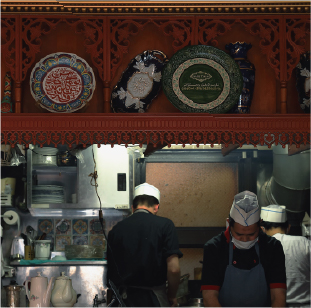
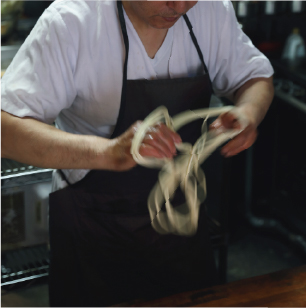


閲覧中の特集はこちら
